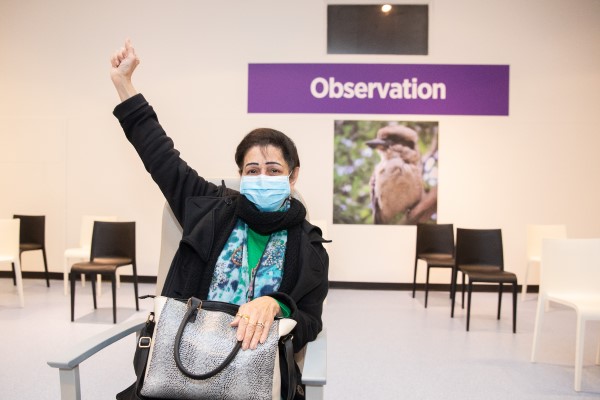
Health officials have stressed there will be more than enough COVID-19 vaccines to meet demand for boosters and for when children are eligible to receive the jab.
The rapid rise of cases across the country, particularly in NSW, has prompted greater emphasis on the importance of booster shots, with some clinics having to turn people away due to the rush on third doses.
An extra 2.3 million people will be able to receive the vaccine from January when five- to 11-year-olds become eligible.
However, the head of the country's vaccine rollout Lieutenant-General John Frewen said there would not be difficulty with supply.
"The amounts that we have available far exceed any demand right now," he told reporters in Canberra.
"(January) will start to see a bit more pressure come onto the system, the big demand when large numbers of people become eligible for boosters is into the February and March period."
The country's leading vaccine advisory group said third doses of the vaccine would not be brought forward further.
The gap between the second and third doses will remain at five months, although vaccine providers have been advised to give some flexibility around time frames during the Christmas period should people be one or two weeks early for their dose.
Lt Gen Frewen said more than four million people will be eligible for boosters by the end of the year, with the number to rise to seven million in January and 11 million in February.
So far, more than one million Australians have received their booster shot.
Chief Medical Officer Professor Paul Kelly said despite the rise in cases, the vaccines worked against the new variants.
"The vaccine remains effective against severe disease, perhaps a little less than it is the case with Delta, but it does remain effective," he said.
"That is one of the reasons why we are seeing increases in cases but not so much of an increase in hospitalisations or other forms of severe disease."
Despite the rise in cases due to the Omicron variant, states continue to ease restrictions.
NSW and Victoria will no longer require international arrivals to isolate for 72 hours upon arrival.
Fully vaccinated travellers will instead be required to get a test within 24 hours of arrival and isolate until they get a negative result.
It comes as NSW recorded its highest daily number of cases, with 2213 on Friday, and one death.
Victoria registered 1510 new cases and seven deaths while the ACT had 20 new cases.
South Australia will ease restrictions further on December 28 despite recording 64 new cases.
Queensland Premier Annastacia Palaszczuk reintroduced a mask mandate for hospitals, retail, public transport and airports after the state recorded 16 new cases.
The Northern Territory had eight infections, leading to Tennant Creek being forced into a lockdown one week before Christmas.
The national vaccination rate for over 16s has passed 90 per cent.
© AAP 2021
Image: News